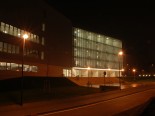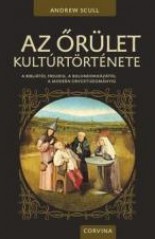Tisztelt Olvasóik! Tisztelt Érdeklődők! Szeretettel várunk mindenkit a TermDok-Központ szerdai rendezvényére, Dr. Christian Galinski és Blanca Stella Giraldo Pérez előadására, valamint az azt követő beszélgetésre. Időpont: 2015. október 14. (szerda) 15:00. Helyszín: Tudásközpont II. em. Számítógépes Terem (2441) 7622 Pécs, Universitas u. 2/A
Program — 2015. október 14. (szerda)
- 15:00 – Blanca Stella Giraldo Pérez : Methodology for developing a terminological glossary in a highly dynamic field
- 17:00 – Dr. Christian Galinski : Rolle von Infoterm und ISO/TC 37 bei der Entwicklung der Terminologiewissenschaft und terminologischer Aktivitäten weltweit
Előadók
Dr. Christian Galinski
Rolle von Infoterm und ISO/TC 37 bei der Entwicklung der Terminologiewissenschaft und terminologischer Aktivitäten weltweit
Rückblickend waren folgende Daten Ausgangs - und Eckpunkte für die Entwicklung der Terminologiewissenschaft zu einer anerkannten Disziplin:
- 1951/52 Wiedereinrichtung von ISO/TC 37 „Terminologie (Grundsätze und Koordination)“ und Über nahme des Sekretariats durch Eugen Wüster
- 1971/72 Gründung des Internationalen Informationszentrums für Terminologie (Infoterm) durch die UNESCO und Übernahme des Sekretariats von ISO/TC 37 Erst in den 1980er und 1990er Jahren etabl ierte sich die Terminologiewissenschaft im Kosmos der Wissenschaften – ausgehend von Europa und insbesondere vom deutschsprachigen Raum. Heute befassen sich viele Bereiche mit terminologiewissenschaftlichen Themen und Anwendungen: Translationswissenschaft, Fachsprachenforschung, Wirtschaftslinguistik, Fachlexikographie, Computerlinguistik – um nur einige zu nennen.
 Ausgehend von den Anfängen der Terminologiewissenschaft und ihren vielfältigen Anwendungen heute, wird die Präsentation den Teilnehmern Beispiel e für erfolgreiche Laufbahnen in Wissenschaft, Wirtschaft und öffentlicher Verwaltung aufzeigen.
Ausgehend von den Anfängen der Terminologiewissenschaft und ihren vielfältigen Anwendungen heute, wird die Präsentation den Teilnehmern Beispiel e für erfolgreiche Laufbahnen in Wissenschaft, Wirtschaft und öffentlicher Verwaltung aufzeigen.
Dr. Christian Galinski studierte Japanologie, Sinologie und (frühe) Informations - und Kommunikationswissenschaften in Bonn, Fukuoka (Japan) und Wien. Er ist seit 1976 nebenberuflich Gerichtsdolmetscher für Japanisch in Wien. 1979 bei Infoterm angestellt ist er seit 1986 Leiter von Infoterm. 1986 – 2008 war er zugleich Sekretär von ISO/TC 37 und betreut dieses technische Komitee seither auch weiterhin als Zweit er Sekretär. C. Galinski hat zahlreiche Projekte für die UNESCO und andere internationale Organisationen, für die EU - Kommission und viele nationale Regierungsstellen durchgeführt. Er ist Berater für Terminologiepolitik und terminologische Aspekte der Sprac htechnologien und – industrie, sowie Autor zahlreicher Veröffentlichungen.
Mag. Blanca Stella Giraldo Pérez
Methodology for developing a terminological glossary in a highly dynamic field
Infoterm was asked by UNESCO to prepare a terminological glossary on “Internet Governance” for translation into Arabic. The challenges were:
- the terminological data had to be taken as much as possible from about 150 documents on Internet go vernance at international level
- the body of documents was composed of a variety of heterogeneous sorts of text and in different technical formats
- there was no generally accepted way of subdividing the many aspects of Internet governan ce into sub - fields
- from potentially several thousand terminological entries about 250 to 350 “most important” ones had to be chosen
- the formulation of the “descriptions” of the concepts had to be based on “significant contexts”, i.e. they often had to be combined from several contexts
- the descriptions had to be “user - friendly” and formulated with translation into Arabic in mind
 Infoterm was chosen in order to make sure that the generally agreed – and mostly standardized – principles of terminology and terminology work were not compromised. The results of the work underwent checking by Internet governance experts and finally – after translation into Arabic – by Arab Internet governance experts. Th e work is now under final editing at UNESCO to prepare it for publication.
Infoterm was chosen in order to make sure that the generally agreed – and mostly standardized – principles of terminology and terminology work were not compromised. The results of the work underwent checking by Internet governance experts and finally – after translation into Arabic – by Arab Internet governance experts. Th e work is now under final editing at UNESCO to prepare it for publication.
The methodology can serve as a practical method in terminology work on new and dynamic domains in the form of a combined descriptive and prescriptive approach which can also be appl ied in specialized lexicography.
Mag. Blanca Stella Giraldo Pérez holds a Bachelor in Modern Languages (1989) and Master in English Didactics (2005) of University of Caldas in Manizales, Colombia. In 1996 she acquired the Specialist Diploma in Translatio n Research and Education of Autónoma University of Manizales (UAM). Throughout her professional life she has actively participated in academic research activities at the Universities where she was employed. As a member of CITERM Group (Centre of Terminolog y Research) at UAM major activities were geared at constituting the Master Program in Translation and developing the target research lines of the group: Terminology, Translation, LSP teaching. In parallel, she has worked in the framework of COLTERM (Colomb ian Terminology Network) in cooperation with the GITT (Group of Research in Terminology and Translation) at the Language School of Antioquia University (in Medellín, Colombia) in research projects aiming at the development of the methodology and infrastruc ture for terminology, standardization and LSP in Colombia. Since 2012 she is working with Infoterm in Vienna.


.JPG)





















































































 Andrew Scull: Az őrület kultúrtörténete : a Bibliától Freudig, a bolondokházától a modern orvostudományig
Andrew Scull: Az őrület kultúrtörténete : a Bibliától Freudig, a bolondokházától a modern orvostudományig